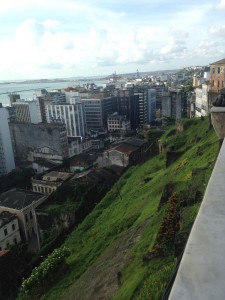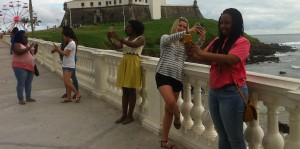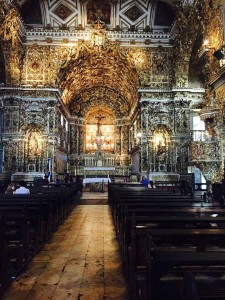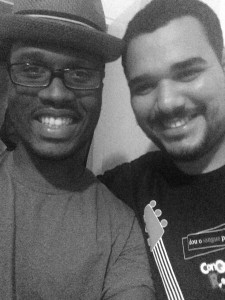Bom Dia! As the sun rose at 5am this morning, I began to reflect on the last eleven days here in Brazil. Salvador is an amazing city full of old and new culture that overflows into their daily life, food and religion. This city is truly a melting pot in all aspects. From trying to communicate to my host mom to learning about universal healthcare, each experience has taught me something. The more I immerse myself into this culture the more I get out of it.
We began our day by traveling to the Institute of Collective Health at the Federal University of Bahia where we learn about Brazil’s health disparities. Professor Sheila Alvim discussed an ongoing epidemiological study funded by the Brazilian government to study the incidence and progression of diabetes and cardiovascular diseases to analyze their biological behavioral environmental and social risk factors. Chronic non-communicable diseases have become a major priority in Brazil as more than 85% of Brazilians live in urban areas. This study will hopefully continue to analyze the nature of these diseases within the population to future implement major policies of prevention and control.
This afternoon’s adventure consisted of learning about Candomblé, an African religion that was introduced in Brazil during the slave trade in the 1700s. This religion is still being practiced today by many Afro- Brazilians and Brazilians alike. Our tour guide Simone took us to the religious territory called Ilê Axé Opó Afonjá where the high priestess and her followers still occupy the area and practice their religious beliefs. We were able to tour the museum on the site and learned about the history of Candomblé and it’s impact on Salvador throughout the years. Below is a picture of one of the Orixas, a spirit named Xango that was the protector of the founder of this community in the early 1900s. The community still practices their beliefs today hosting festivals and ceremonies for their many spirits they praise.
 After learning about this religion, we traveled to Pelourinho, the historic district of Salvador, to watch a Folk Ballet of the religious African culture. It was amazing to watch how Candomblé was expressed through singing and dance. The history of the religion is precious to it’s followers as slavery took a huge toll on it’s secrecy and practice. Today, the Brazilian government has acknowledged this religion and has allowed this religion to be practiced freely after many years of persecution. This ballet was a great representation of the years of struggle of Afro-Brazilians and their precious religion.
After learning about this religion, we traveled to Pelourinho, the historic district of Salvador, to watch a Folk Ballet of the religious African culture. It was amazing to watch how Candomblé was expressed through singing and dance. The history of the religion is precious to it’s followers as slavery took a huge toll on it’s secrecy and practice. Today, the Brazilian government has acknowledged this religion and has allowed this religion to be practiced freely after many years of persecution. This ballet was a great representation of the years of struggle of Afro-Brazilians and their precious religion.
Traveling to Brazil has by far been the best cultural experience I have had. I was hesitant at first, but everyday became easier as I began to realize that the United States isn’t the “right” culture. I stopped comparing everything to what it was in the states and began to embrace my environment. Brazil is definitely not a representation of American life, but it’s own oasis that is full of beautiful people, food, culture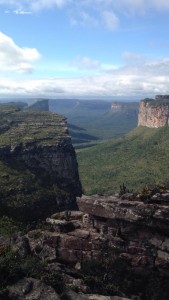 , art and nature.
, art and nature.
-Angie

